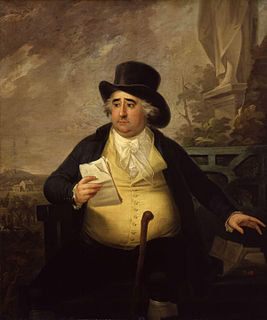Top 24 Quotes & Sayings by Charles James Fox
Explore popular quotes and sayings by an English celebrity Charles James Fox.
Last updated on April 14, 2025.
Persecution always says, 'I know the consequences of your opinion better than you know them yourselves.' But the language of toleration was always amicable, liberal, and just: it confessed its doubts, and acknowledged its ignorance ... Persecution had always reasoned from cause to effect, from opinion to action, [that such an opinion would invariably lead to but one action], which proved generally erroneous; while toleration led us invariably to form just conclusions, by judging from actions and not from opinions.
Any thing that proves that it is not in the power of Kings and Princes by their great armies to have every thing their own way is of such good example that without any good will to the French one can not help being delighted by it, and you know I have a natural partiality to what some people call rebels.
So fully am I impressed with the vast importance and necessity of attaining what will be the object of my motion this night, that if, during the almost forty years that I have had the honour of a seat in parliament, I had been so fortunate as to accomplish that, and that only, I should think I had done enough, and could retire from public life with comfort, and the conscious satisfaction, that I had done my duty.
No human government has a right to enquire into private opinions, to presume that it knows them, or to act on that presumption. Men are the best judges of the consequences of their own opinions, and how far they are likely to influence their actions; and it is most unnatural and tyrannical to say, "as you think, so must you act. I will collect the evidence of your future conduct from what I know to be your opinions."
What acquaintance have the people at large with the arena of political rectitude, with the connections of kingdoms, the resources of national strength, the abilities of ministers, or even with their own dispositions?...I pay no regard whatever to the voice of the people: it is their duty to do what is proper, without considering what may be agreeable.



















